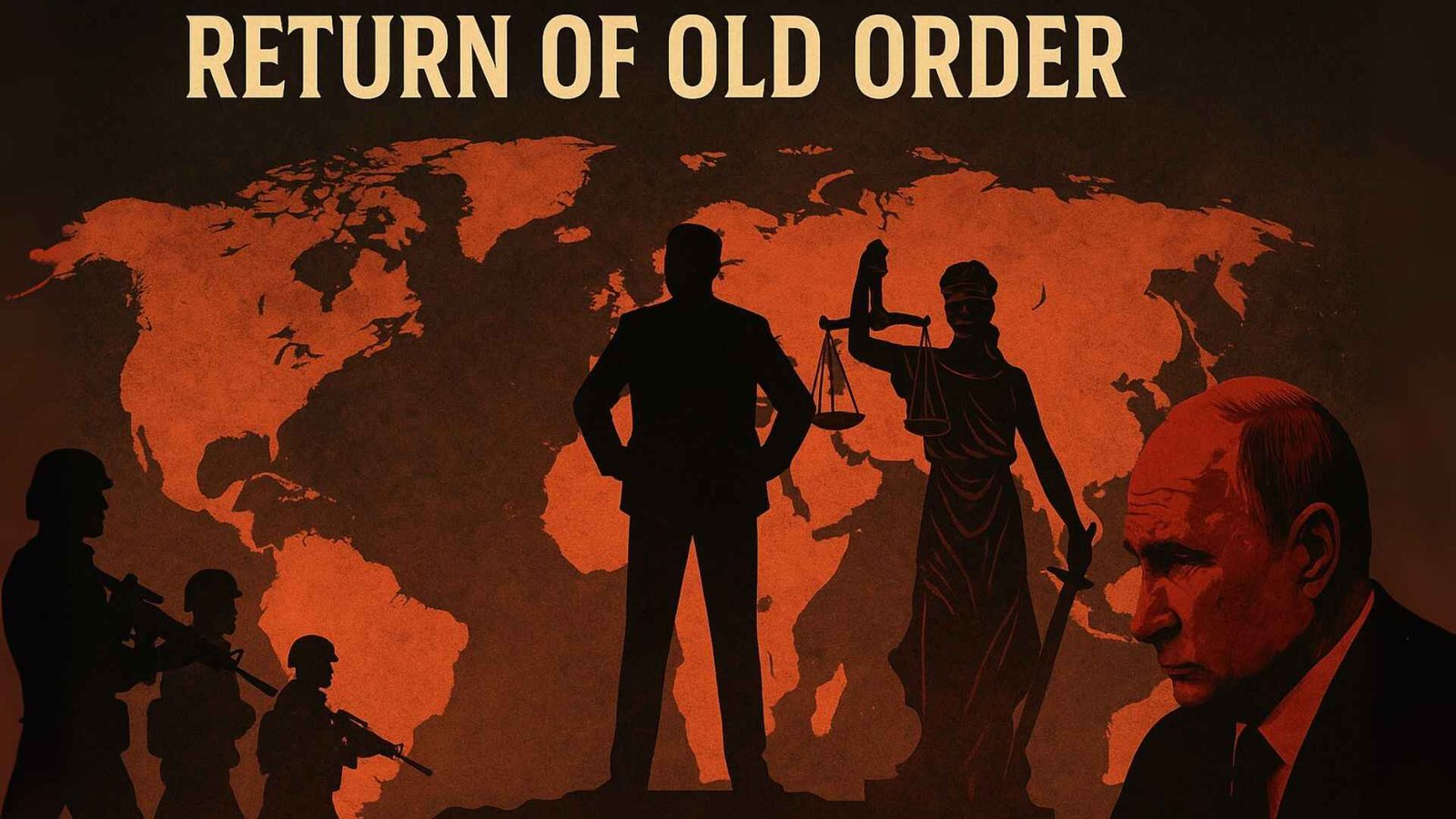The global order today is in flux, caught between the collapse of the post–World War II liberal framework and the absence of a coherent replacement. As conflict spreads across continents and ideologies crumble, the world appears to be returning to an older, harsher logic of geopolitics—rooted not in shared values, but in raison d’état (national interest) and balance of power.
 🧭 A Return to the Old Order?
🧭 A Return to the Old Order?
Despite hopes of liberal democracy’s dominance after the Cold War—most famously asserted by Francis Fukuyama’s “End of History”—the world has veered in a different direction. Samuel Huntington’s prediction of civilizational clashes seemed more accurate as wars and tensions grew along cultural, religious, and national lines.
Today, the globe is embroiled in multi-front crises:
- Russia’s war in Ukraine
- Escalating Middle East tensions (Israel vs Hamas, Hezbollah, Houthis, Iran)
- US-Iran conflict and a renewed India–Pakistan standoff
- China’s strategic rise
- Fallout from America’s withdrawal from Afghanistan and past interventions in Iraq and Libya
These flashpoints echo 17th–20th century templates—where national interest, first strikes, and alliance systems shaped global conflict.
🏛 Origins of Modern Geopolitics
The 1648 Peace of Westphalia established the idea of sovereign nation-states. France’s Cardinal Richelieu introduced raison d’état, while Hugo Grotius and William of Orange developed balance-of-power systems. These principles—tested through events like the Concert of Vienna (1815) and two World Wars—still influence international relations today.
By the 20th century, technological change (mobilization speed, nuclear weapons) further complicated traditional strategies. The Cold War saw the emergence of MAD (mutually assured destruction), cementing power structures built on fear and alliances.
🚨 The Illusion of Liberal Victory
The post-1991 unipolar world, led by the US, seemed like the dawn of liberal democracy—but 9/11 shattered that illusion. The war on terror, interventions in Afghanistan, Iraq, and Libya failed to establish democracies or peace, exposing the limits of idealism.
Instead, actions were consistently driven by national interest, even when cloaked in moral language like “democracy promotion” or the Right to Protect.
🔁 The Cycle Repeats
China’s rise isn’t ideological—it’s a pursuit of its perceived historical destiny. The return of the Taliban wasn’t a civilizational clash—it was a strategic calculation. In every case, realpolitik has trumped idealism.
Thus, despite modern technology and economic integration, global politics continues to be ruled by centuries-old doctrines:
- Raison d’état – Nations act to protect and advance their own interests.
- Balance of power – Alliances shift to maintain strategic equilibrium.
These principles, forged in Europe’s age of empires, still dominate. And as we look ahead, they are likely to define the new global order—not something radically different, but rather a revival of an old order in modern clothes.


